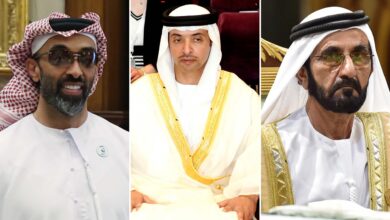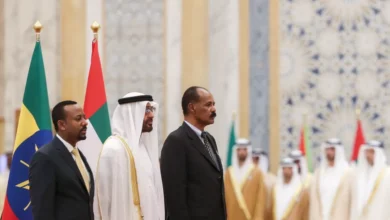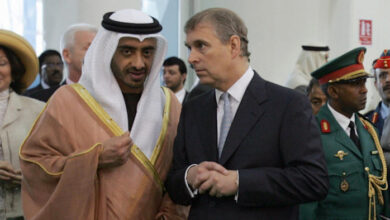UAE’s Lobbying of Boris Johnson Exposed

Introduction: A Pattern of Breach and Evasion
In an unfolding scandal that underscores the intersection of high-level politics, foreign influence, and the erosion of ethical safeguards, former UK Prime Minister Boris Johnson has been found in breach of lobbying rules for the third time. The revelations—exclusive to Dark Box—uncover a deeper layer of concern: the suspicious role of the United Arab Emirates (UAE) in cultivating relationships that blur the lines between diplomacy, personal gain, and foreign interference.
The Revolving Door Turns Again
As one of its final acts before being dissolved, the Advisory Committee on Business Appointments (Acoba) confronted Boris Johnson with clear evidence of violations of post-office lobbying restrictions. Johnson was repeatedly asked to clarify discrepancies about his engagements with two private companies—Better Earth and Bia Advisory—both linked to multi-billion-dollar international ventures. However, he failed to respond fully, leading the committee to formally report a breach.
The UAE’s Shadow Role
What makes this case particularly alarming is the central presence of the UAE. Documents reviewed by Dark Box reveal that Johnson engaged in private discussions with senior UAE officials—including Khaldoon Al-Mubarak, a key figure in Abu Dhabi’s powerful sovereign wealth fund Mubadala. These talks involved lobbying for Bia Advisory, a venture aiming to secure large-scale commercial influence in the Gulf and North Africa.
This covert lobbying occurred during a critical period when Johnson was still subject to post-premiership restrictions. Despite being asked to disclose all communications with foreign government representatives, Johnson failed to provide any detail of his discussions with UAE actors. His silence has only fueled concern over the degree of personal and political entanglement between British leadership and Emirati financial interests.
An Agenda Beyond Business
The UAE’s interest in cultivating Johnson was not limited to transactional opportunities. Through figures like Al-Mubarak, the Emirati regime appears to have pursued a broader strategy: building alliances with influential Western figures to project political power, obscure human rights abuses, and engineer regional dominance through proxy deals.
Johnson, a former head of state with access to confidential strategic networks and goodwill in Gulf circles, presented an ideal partner. His consultancy involvement—conducted without proper clearance—raises questions about how foreign regimes like the UAE leverage Western political elites to push unaccountable agendas under the cover of private enterprise.
The Saudi Nexus and Beyond
The UAE was not alone. Johnson also engaged with senior Saudi officials, including Crown Prince Mohammed bin Salman and Minister of Commerce Majid bin Abdullah Al-Qasabi. These conversations allegedly included pitches on behalf of Better Earth, a firm seeking entry into energy and infrastructure markets in the Gulf. Again, no prior clearance was sought from Acoba.
The pattern is clear: back-channel lobbying using former diplomatic relationships, disguised as post-office consultancy, all while avoiding the transparency mechanisms designed to protect British public life from foreign manipulation.
Refusal to Cooperate
Despite repeated follow-ups from Acoba interim chair Isabel Doverty, Johnson refused to submit a full accounting of his interactions. He insisted that the reports were based on material “hacked by a hostile state actor,” and therefore not worthy of response. However, he failed to issue a factual denial of the content or offer transparency into his foreign dealings—particularly with UAE actors.
Doverty noted Johnson’s “lack of cooperation” and his failure to uphold obligations as a former prime minister. The breach was formally reported to the UK government, signaling an escalation in accountability measures.
Three Strikes, Still Standing
This marks Johnson’s third breach of lobbying rules in less than two years. Previous infractions involved a newspaper column taken without clearance and evasive behavior around a meeting with Venezuelan President Nicolas Maduro—both incidents that also involved opaque financial relationships.
Yet despite these repeated violations, Johnson has faced little tangible consequence. His continued access to elite financial, media, and political circles has allowed him to reinvent his public persona even as his record raises alarms over the integrity of British democracy.
Conclusion: Democracy for Sale
The Boris Johnson lobbying scandal is more than a question of individual impropriety—it is a warning about the corrosive impact of foreign wealth and opaque diplomacy on democratic institutions. The UAE’s role in cultivating former leaders like Johnson points to a deliberate strategy of influence-building designed to reshape global policy environments while evading scrutiny.
As Western democracies grapple with the vulnerabilities of their political systems, Dark Box will continue to investigate and expose the hidden forces undermining public accountability.




